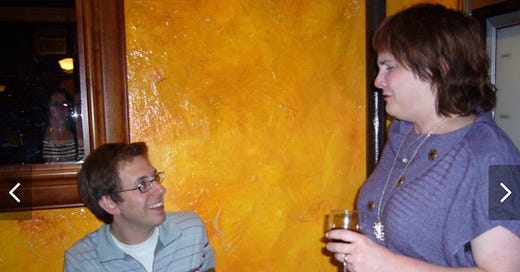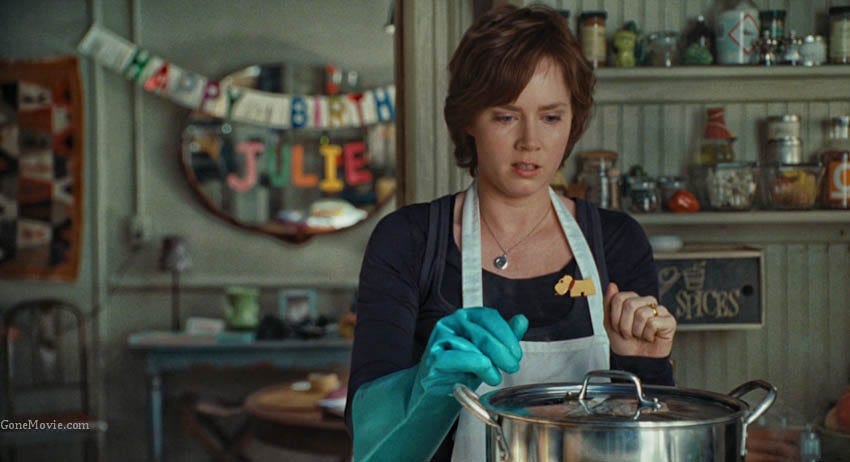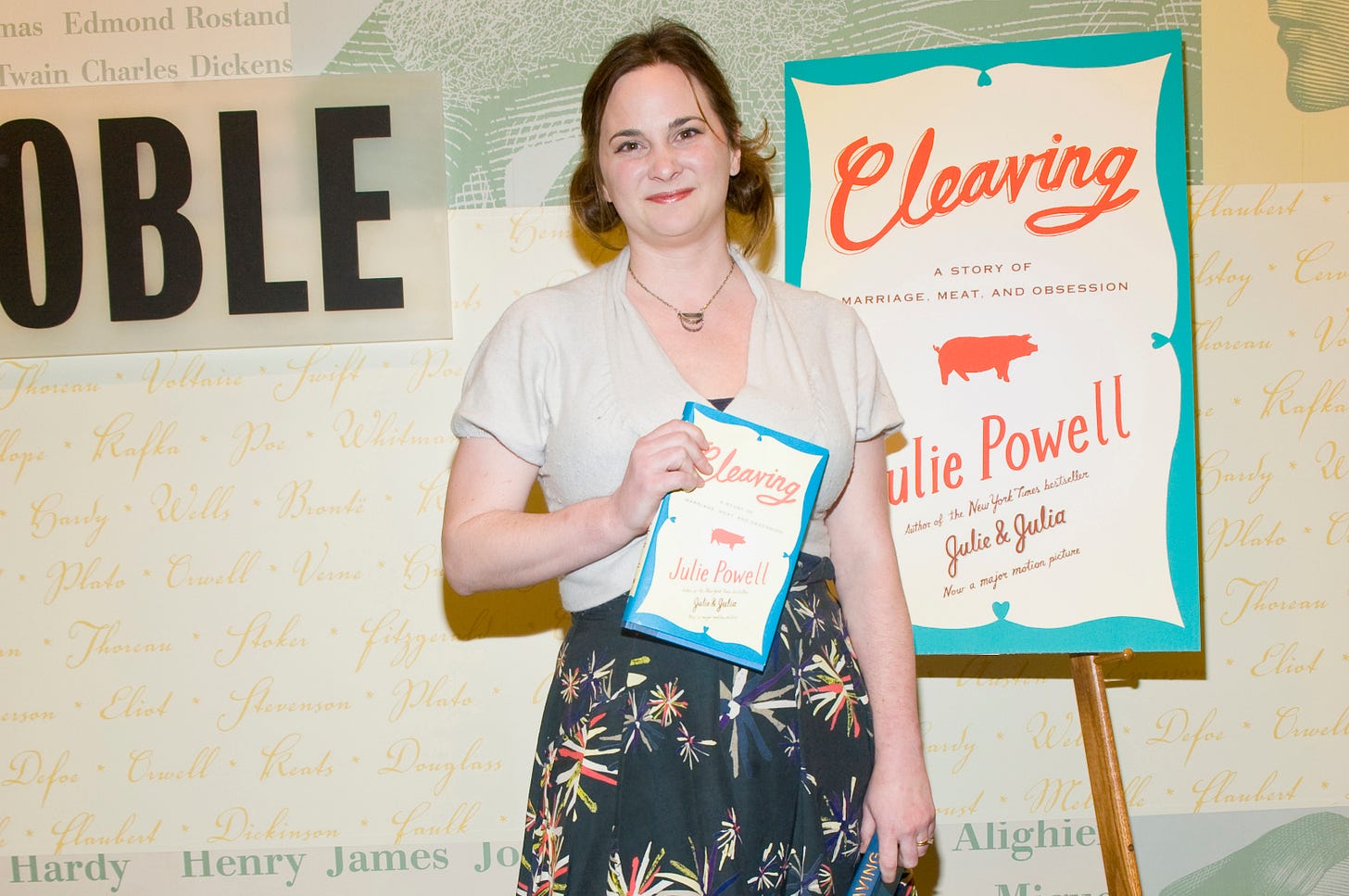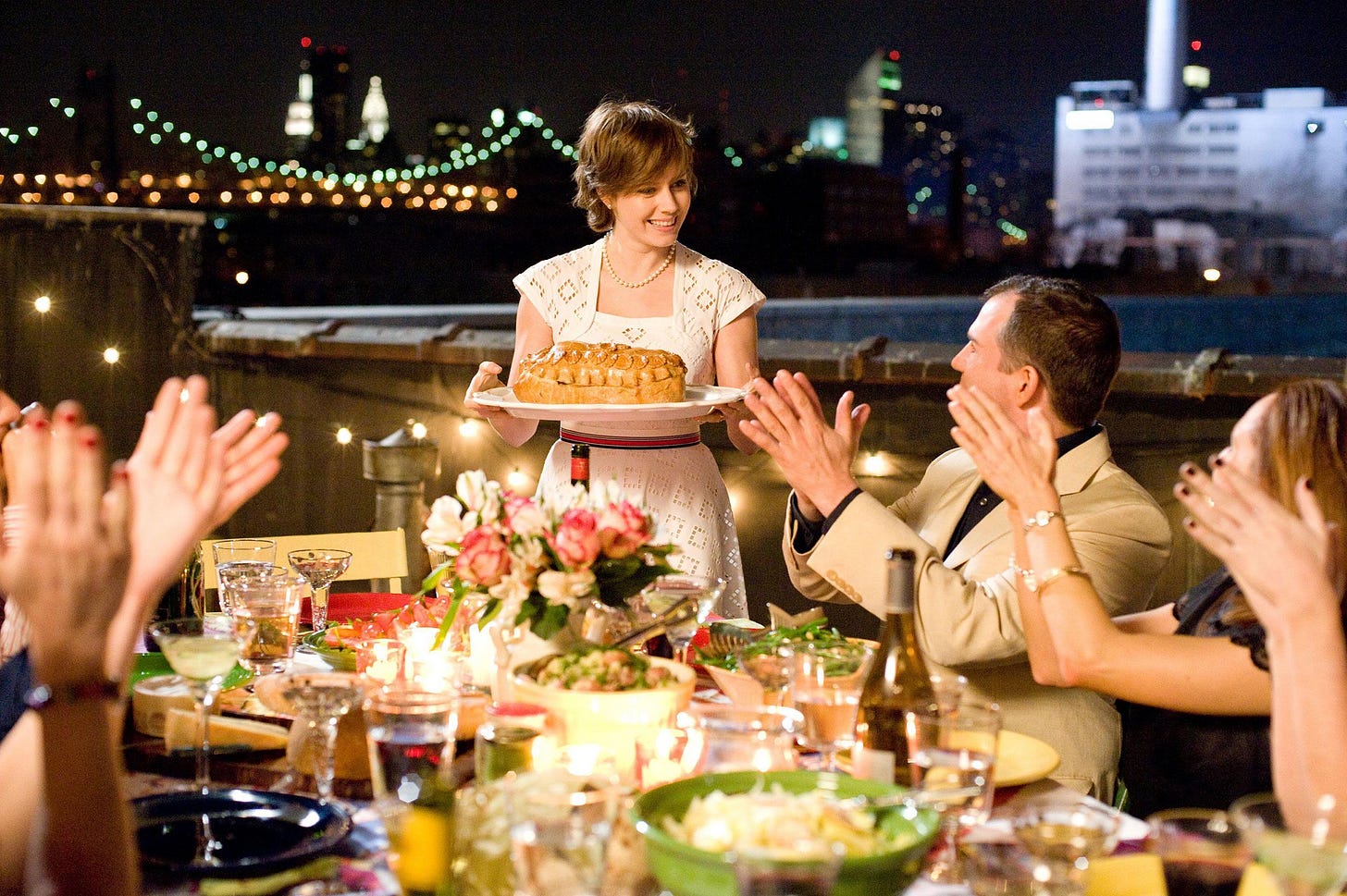Hey everyone,
My plane landed in NY on Tuesday and I had one of those moments that you get these days with technology where someone’s death appears suddenly on Twitter and as you’re standing there shocked, trying to process, you have to ignore the surrounding posts featuring cabbage recipes and Halloween costumes. That was the case with Julie Powell’s death which has now been widely reported (I was quoted in The Washington Post about it) but, at the moment that I read about it, felt impossible. She was only 49!
Julie and I only met once in real life, at a casserole party organized by Emily Farris, who sent me the picture you see above. We immediately clicked and ever since we became Twitter friends. After I wrote that “an ugly pie is still a pie” in August, she replied:
The journalist for The Washington Post, Emily Heil, wanted to know the timeline of our blogs and so I had to look it up: Julie started Julie/Julia in 2002 and I started mine in 2004. Whenever I tell the story of the genesis of my blog, I always talk about being a miserable law student and cooking for myself for the first time in my life and my friends telling me that I should start a blog and me saying “what’s a blog?” and randomly typing some words into Typepad (remember Typepad?) and beginning my career.
But I had to have been aware of Julie in 2004 when I started: the success that she achieved with Julie/Julia wasn’t just inspirational, it was liberating. Up until that point I’d been reading food books by Calvin Trillin and Ruth Reichl and Jeffrey Steingarten; the bar to entry seemed impossibly high. Julie showed us that you didn’t have to have a literary pedigree or access to the muckety-mucks in the publishing world to get people to read your work. In fact, this newfangled technology called blogging was a means to bypass all of that.
Not only did Julie democratize food writing with the runaway success of her blog, she also democratized gourmet cooking: you didn’t have to go to Le Cordon Bleu to attempt Julia Child’s Boeuf Bourguignon, you just had to have a pot, counter space wide enough to slice the onions, and a few hours for it to simmer away. (The fact that Julia herself disavowed Julie’s efforts — saying she wasn’t “much of a cook” — feels less like a rebuke and more like the result of a generational divide; if blogging existed in France in 1948, I’m sure Julia would’ve had a blog of her own.)
I can’t imagine how surreal it must’ve been for Julie to have her work go from a random after-work hobby to a blockbuster movie starring Amy Adams and Meryl Streep (for which Meryl received her three thousandth Oscar nomination). And then to have to follow that up with another book! The fact that she did so with a book called Cleaving, about butchery and adultery, is one of the boldest things that I think she could possibly have done.
It’s not speaking ill of the dead to say that people hated this book. Linda Holmes at NPR wrote: “I found her latest book, Cleaving, one of the most unpleasant reading experiences I've ever had.” And the comments on Amazon seem to be written by heartbroken fans of the movie; the most popular one says: “It is frankly the most selfish, self-absorbed, self-delusional book I've ever read.”
To which I say: how cool is that? To write a book so repellent, so off-putting to your fans, they basically want to boil you in a pot of Julia’s soupe d’oignon. Like the honeybadger in that viral video, Julie Powell didn’t give a f***. It’s almost like she anticipated the whole culture of lifestyle branding that would come with the advent of Instagram and TikTok and she said to the world, “I’m not pretending that my marriage is perfect and that I wake up perfectly quaffed making croissants for breakfast in my designer apron!” Instead she said: “This is who I am, warts and all.” (And I want to point out how brilliant the title “Cleaving” is: it’s one of the only verbs that means one thing — “to split or to sever” — and its opposite — “to stick fast to” — at the same time.)
Julie’s irascibility was both her greatest strength and her greatest weakness (her NYT obituary ends with a quote from her husband that became her Twitter bio: “You hate everyone and you love everyone. That is your gift”). She had trouble getting another book off the ground. One of her last Tweets was:
This unresolved crisis, of the Amy Adams version of Julie and the Cleaving version of Julie, is what makes her such an inspiration to me. She dared to be herself even when being herself meant alienating her base. She launched herself by being irreverent about the most revered French cookbook and she went out the same way; thumbing her nose at convention, struggling to make sense of herself and the world, grabbing the bull by its horns and serving it for dinner.
Rest in peace, Julie Powell.










This is lovely; thank you.
This is such a wonderful tribute. I love your writing as much as I expect I’d love your cooking!